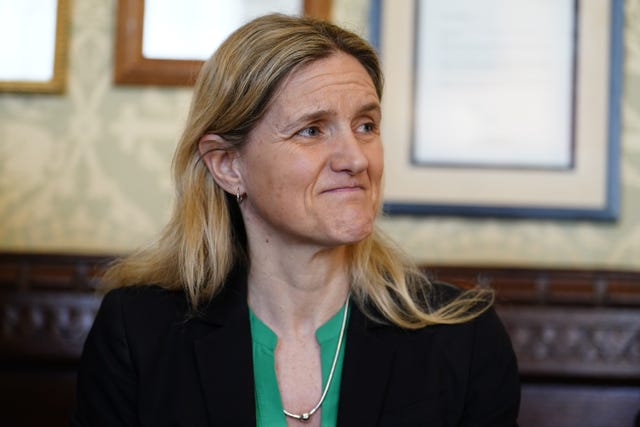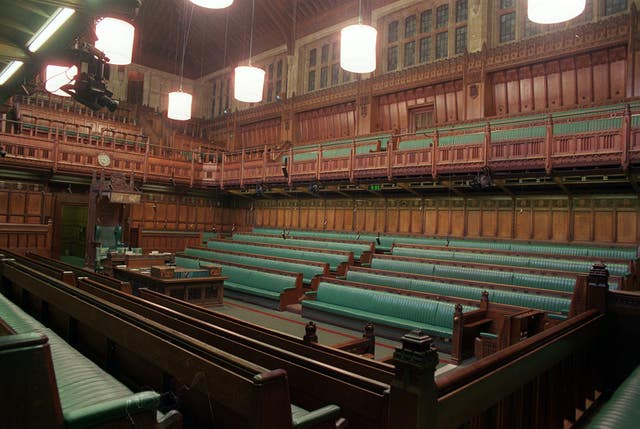All you need to know as the assisted dying Bill returns to Parliament
The Bill is heading back to the Commons for its report stage where MPs will debate and vote on amendments.

The assisted dying Bill is back in the House of Commons on Friday, where MPs will once again debate the controversial issue.
Here, the PA news agency takes a look at the Bill and how the process might work.
– What is in the Terminally Ill Adults (End of Life) Bill?

The proposed legislation would allow terminally ill adults in England and Wales, with fewer than six months to live, to apply for an assisted death.
This would be subject to approval by two doctors and a panel featuring a social worker, senior legal figure and psychiatrist.
The terminally ill person would take an approved substance, provided by a doctor but administered only by the person themselves.
– When would assisted dying be available if the Bill became law?

The implementation period has been doubled to a maximum of four years from royal assent, rather than the initially-suggested two years.
If the Bill was to pass later this year that would mean it might not be until 2029, potentially coinciding with the end of this Government’s parliament, that assisted dying was being offered.
Labour MP Kim Leadbeater, who is the parliamentarian behind the Bill and put forward the extended timeframe, has insisted it is “a backstop” rather than a target, as she pledged to “hold the Government’s feet to the fire” on implementing legislation should the Bill pass.
The extended implementation period was one of a number of changes made since the Bill was first introduced to the Commons back in October.
– What other changes have there been?

The High Court safeguard has been dropped and replaced by expert panels – a change much-criticised by opponents who said it weakened the Bill, but something Ms Leadbeater has argued strengthens it.
At the end of a weeks-long committee process earlier this year to amend the Bill, Ms Leadbeater said rather than removing judges from the process, “we are adding the expertise and experience of psychiatrists and social workers to provide extra protections in the areas of assessing mental capacity and detecting coercion while retaining judicial oversight”.
Changes were also made to ensure the establishment of independent advocates to support people with learning disabilities, autism or mental health conditions and to set up a disability advisory board to advise on legal implementation and impact on disabled people.
– Do we know much more about the potential impact of such a service coming in?
A Government impact assessment published earlier this month, estimated that between 164 and 787 assisted deaths could potentially take place in the first year of the service, rising to between 1,042 and 4,559 in year 10.
The establishment of a Voluntary Assisted Dying Commissioner and three-member expert panels would cost an estimated average of between £10.9 million to £13.6 million per year, the document said.
It had “not been possible” to estimate the overall implementation costs at this stage of the process, it added.
While noting that cutting end-of-life care costs “is not stated as an objective of the policy”, the assessment estimated that such costs could be reduced by as much as an estimated £10 million in the first year and almost £60 million after 10 years.
– Do healthcare staff have to take part in assisted dying?

It was already the case that doctors would not have to take part, but Ms Leadbeater has also confirmed she will propose a clause to ensure “anybody who does not want to be involved in the assisted dying process should not be forced to do so”, meaning pharmacists and others will have the right not to participate.
On organisations such as hospices however, Ms Leadbeater said she wanted to give them “the time and space to think about if and how they choose to have assisted dying as part of what they do”.
There is nothing in the Bill to say they have to, nor is there anything to say they do not have to, she said, adding on the Parliament Matters podcast that this is “the best position to be in” and that nobody should be “dictating to hospices what they do and don’t do around assisted dying”.
– What is happening on Friday?

The Bill is at report stage – where MPs will debate and vote on various amendments.
It is the first time the Bill is returning to the Commons since it passed second reading in a historic vote in November, when MPs supported it by a majority of 55.
With so many amendments proposed for debate during the five-hour sitting, report stage could possibly run into a second day next month.
That would mean a Third Reading vote – where MPs vote yes or no and decide whether to send the Bill on to the House of Lords – might be delayed for another time.
– What about assisted dying in the rest of the British Isles?

The Isle of Man looks likely to become the first part of the British Isles to legalise assisted dying, after its proposed legislation passed through a final vote of the parliament’s upper chamber in March.
In what was hailed a “landmark moment”, members of the Scottish Parliament (MSPs) on Tuesday voted in favour of the Assisted Dying for Terminally Ill Adults (Scotland) Bill, backing its general principles.
It will now go forward for further scrutiny and amendments but will only become law if MSPs approve it in a final vote, which should take place later this year.
Any move to legalise assisted dying in Northern Ireland would have to be passed by politicians in the devolved Assembly at Stormont.
Jersey’s parliament is expected to debate a draft law for an assisted dying service on the island for terminally ill people later this year.
With a likely 18-month implementation period if a law is approved, the earliest it could come into effect would be summer 2027.





